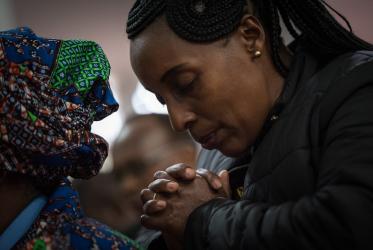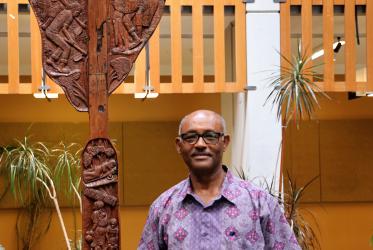Displaying 41 - 60 of 86
WCC joins tribute to Rev. Canon Prof. John Samuel Pobee
28 January 2020
Ethiopians celebrate Meskel festival
01 October 2019
Former WCC executive finds joy working for peace in Ethiopia
06 August 2019
Churches celebrate reconciliations in Ethiopia, Eritrea
07 November 2018
EKD delegation, other visitors grace WCC
26 October 2018
Casely Essamuah, ‘working for the greater glory of God’
26 October 2018
Paving the way for ecumenical studies, learning English in Bossey
24 September 2018
Global gathering explore perceptions of proselytism
13 June 2017
Seven weeks of Lent highlight water crisis in Africa
01 March 2017
Religious leaders explore message of peace in Burundi, DRC
23 February 2017
An interview with the Ethiopian Patriarch, Abune Matthias
14 February 2017
Patriarch Matthias: “Peace is the message of every day”
10 February 2017








